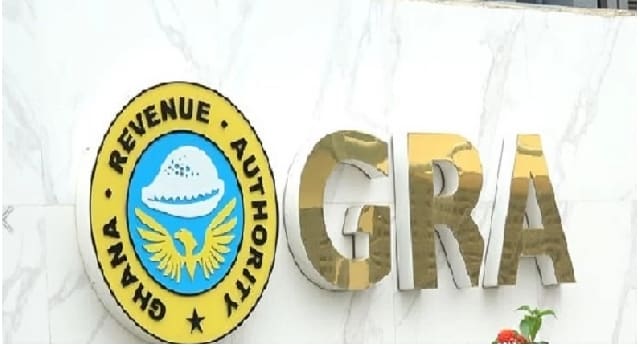Ghana’s government collected GH¢116.2 billion in revenue and grants during the first half of 2025, growing an impressive 22.9% year on year but still falling GH¢6.7 billion short of projections, exposing vulnerabilities in the country’s revenue structure.
The shortfall, revealed in the Bank of Ghana’s September 2025 Monetary Policy Report, shows a curious paradox: revenue is growing strongly, yet the government keeps missing targets. The answer lies in where the money’s coming from and, more importantly, where it isn’t.
Non-oil tax revenue slipped marginally below target by 0.2%, while Pay As You Earn collections underperformed by 3.5%, mainly due to reduced payments from the mining sector following cedi appreciation. When your currency strengthens, mining companies pay less in cedi terms for the same dollar-denominated revenues, directly impacting PAYE collections. It’s one of those counterintuitive effects where economic good news creates fiscal complications.
Corporate tax collections offered some relief, outperforming projections by 2.8%, supported by improved performance in mining and financial sectors. That suggests the broader corporate tax base is healthy even if specific components face headwinds.
Domestic consumption taxes recorded notable gains, reflecting increased consumer spending as inflationary pressures eased. Domestic VAT exceeded its target by 2.2%, the GETFund Levy surpassed projections by 14%, and National Health Insurance Levy collections came in 14.8% above target. These numbers tell a story about Ghanaians spending more freely as prices stabilized and confidence improved.
But here’s where the currency appreciation that helped reduce debt servicing costs starts causing problems elsewhere. Import-related taxes suffered significant shortfalls because the stronger cedi reduced the local value of imports. Import duties missed their target by GH¢1.9 billion, a 13% decline, while the import components of VAT, GETFund Levy, and NHIL fell short by 3.8%, 4.6%, and 5.2% respectively.
The stronger currency creates a policy dilemma: it’s great for managing external debt and containing inflation, but it hammers revenue derived from international trade. Ghana’s reliance on import taxes means currency movements directly affect fiscal performance in ways that complicate economic management.
One standout performer deserves attention. Communications Service Tax exceeded its target by GH¢400 million, a massive 66.3% increase, driven largely by higher gross revenues and stronger collections from prepaid credit sales by a major telecom operator. The telecom sector’s growing contribution to government revenue represents a positive structural shift toward digital economy taxation.
Crude oil revenue tells a much less encouraging story, falling 42.7% below target, equivalent to a GH¢4.4 billion shortfall. The Bank of Ghana attributed this to delayed corporate income tax payments and exchange rate effects. When oil is your fiscal anchor and it underperforms by nearly half, that’s not a revenue line item problem; that’s a structural vulnerability that threatens budget stability.
Grants came in GH¢553 million below target, primarily due to non-disbursement of project grants from some development partners. That’s the polite way of saying that international partners didn’t release money they’d committed, leaving gaps in project financing and highlighting Ghana’s continued dependence on external support.
The first-half fiscal data presents a mixed picture that fiscal managers must find frustrating. Revenue grew strongly in nominal terms, showing the tax base is expanding. Domestic consumption taxes performed well, suggesting the economy is recovering. Corporate taxes exceeded targets, indicating business profitability is improving.
Yet the government still missed its overall revenue target by 5.5% because structural weaknesses remain unaddressed. Heavy dependence on trade taxes makes fiscal performance vulnerable to currency movements. Volatile oil receipts create unpredictability in budget planning. And when development partners don’t disburse committed grants, projects stall and budget holes appear.
Enhanced tax compliance, diversified revenue streams, and efficient collection systems aren’t just bureaucratic priorities; they’re essential for achieving fiscal targets and supporting macroeconomic stability under the government’s ongoing consolidation efforts. The telecom tax performance shows what’s possible when you modernize revenue collection in growing sectors.
What Ghana needs is more revenue sources like the Communications Service Tax that grow with the economy and aren’t vulnerable to currency movements or commodity price swings. The digital economy, financial services, and domestic consumption offer opportunities to build a more resilient revenue base.
The challenge is that diversifying revenue takes time and political will. It means potentially unpopular tax reforms, investing in collection infrastructure, and confronting sectors that currently enjoy preferential treatment. Meanwhile, the government needs money now to fund services and meet debt obligations.
The 22.9% year-on-year growth in revenue collection is genuinely impressive and suggests Ghana’s economy is recovering. But growth alone doesn’t solve structural problems. The shortfalls in oil revenue and import taxes reveal how dependent Ghana remains on volatile external factors for fiscal stability.
For the government’s fiscal consolidation efforts under the IMF program, these numbers present both encouragement and warning. Domestic tax performance is strong, suggesting the economy is responding to stabilization measures. But the overall 5.5% revenue shortfall means the government has less fiscal space than planned, complicating spending decisions and debt management.
Looking ahead, Ghana’s fiscal authorities face a delicate balancing act. They need to maintain the cedi stability that’s helping with debt servicing and inflation control, while recognizing that a strong currency undermines import tax revenues. They need to encourage oil sector payments while accepting that commodity revenues will always be volatile. And they need to expand domestic tax collection without stifling the economic recovery that’s finally taking hold.
The half-year revenue performance highlights both progress and persistent challenges. The gains in domestic tax collection and telecom revenues are encouraging signs that Ghana can build a more resilient fiscal system. But the shortfalls in oil and import-related taxes underscore why structural reforms remain crucial for achieving consistent revenue targets and sustainable fiscal management.
Source: newsghana.com.gh











